When considering internal job applications, it's essential to communicate the decision with clarity and respect. Declining a colleague's application can be a delicate situation, and crafting a thoughtful letter can help maintain a positive relationship. A well-structured rejection letter acknowledges the candidate's efforts while also providing insight into the selection process. If you're looking for tips on how to write an effective rejection letter, keep reading for our comprehensive guide!

Appreciation of interest and efforts.
The internal job application process at large corporations often emphasizes the importance of clear communication and appreciation. Acknowledging an employee's interest in a new role demonstrates respect for their professional growth and contribution to the company culture. Providing feedback about their application can foster a sense of belonging and encourage them to pursue future opportunities. Essential elements include expressing gratitude for their dedication, highlighting their skills and current achievements within the organization, and conveying sincere encouragement for continuing their career development. Maintaining a positive tone can help uphold morale and reinforce the company's commitment to employee development.
Clear reason for rejection.
Internal job applicants, who are often valued team members, may face rejection due to various reasons. For instance, the selected candidate may possess specialized skills or experience that closely align with the job requirements, such as proficiency in a specific software or a track record of successful project management in a fast-paced environment. Additionally, company policies or restructuring scenarios may necessitate filling the position externally to bring in fresh perspectives. Communication about such decisions should emphasize appreciation for the applicant's contributions to the organization while clearly outlining the rationale behind the choice made, thus maintaining morale and encouraging future applications.
Encouragement for future opportunities.
Internal job applications often require careful consideration before making a decision. Employees seeking advancement within organizations may sometimes face rejection, but it is important to maintain morale and motivation. It's crucial to acknowledge the individual's skills, previous contributions, and potential for future roles within the organization. Encouraging them to seek out additional professional development opportunities, such as training programs or mentorship, can foster personal growth and prepare them for future roles. Offering constructive feedback about their application can help them improve, while emphasizing that the decision does not diminish their value to the team or company can maintain a positive work environment. Reminding them that openings arise frequently encourages them to stay engaged and proactive in their career progression.
Personalized feedback for improvement.
Internal job application rejections can be a challenging experience for employees, especially in environments that promote professional growth. Providing personalized feedback is essential for fostering development. Constructive criticism can highlight specific areas of improvement, such as enhancing technical skills relevant to the desired position or developing stronger communication abilities necessary for team collaboration. Employees may benefit from training programs or mentorship opportunities within the organization to better prepare for future applications. Encouraging participation in cross-departmental projects can also broaden their experience and demonstrate initiative. Personalized remarks can motivate employees to refine their skill set while aligning career aspirations more closely with organizational goals. This approach not only preserves morale but also encourages continuous growth within the company's internal talent pipeline.
Invitation for continued engagement and development.
Internal job applications can present unique challenges within an organization, particularly when an employee seeks advancement or a lateral position. A thoughtful rejection can maintain morale and encourage ongoing professional growth. Inviting candidates to partake in further discussions about potential development pathways or training opportunities can reinforce a culture of continuous learning. Providing feedback tailored to specific qualifications or skills can enhance the employee's understanding of areas needing improvement. Engaging in regular performance reviews or mentorship programs can also help the employee feel valued, despite the setback of the rejected application. Organizing workshops or networking events within the company can foster connections and potential future opportunities.
Letter Template For Rejecting Internal Job Application Samples
Letter template of internal job application rejection with constructive feedback.
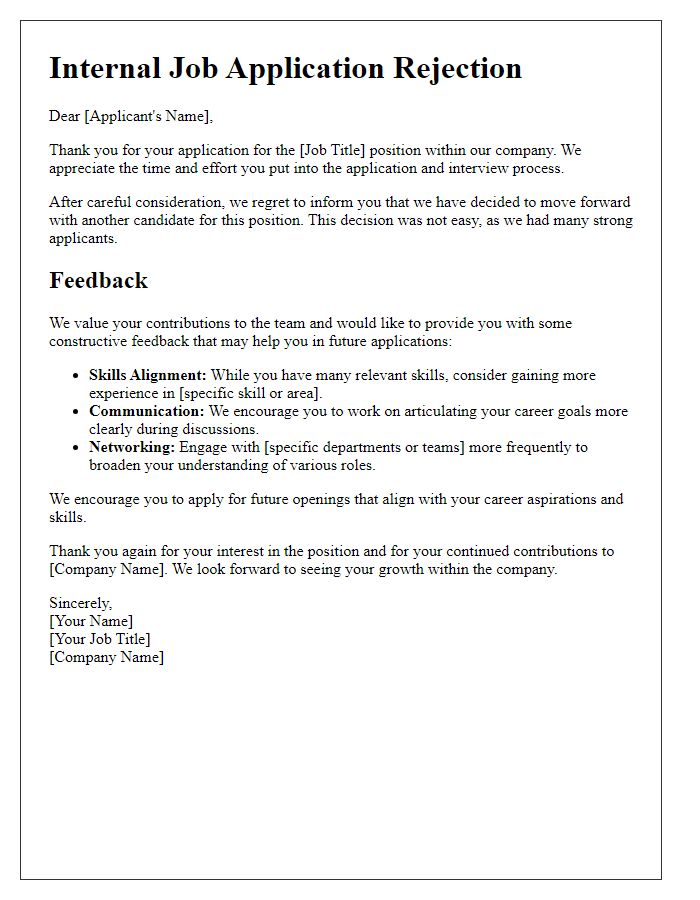
Letter template of internal job application rejection emphasizing future opportunities.
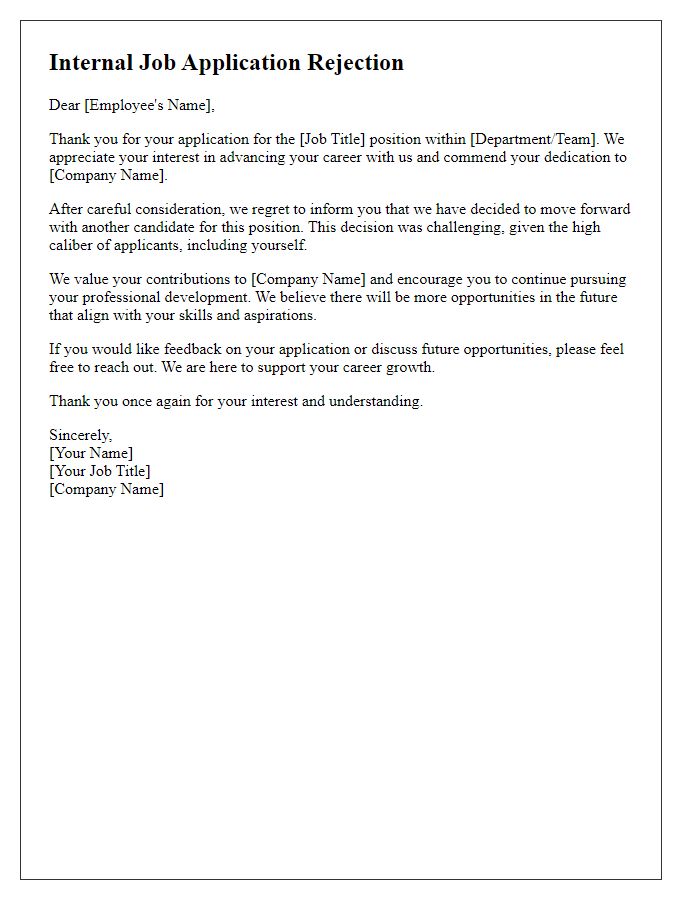
Letter template of internal job application rejection highlighting team contributions.
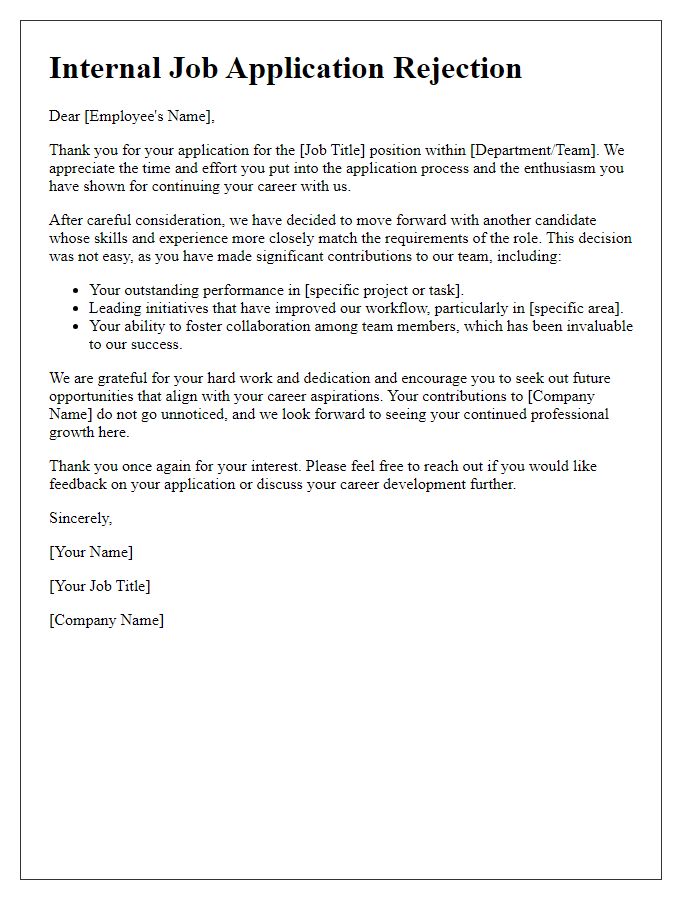
Letter template of internal job application rejection with encouragement for skill development.
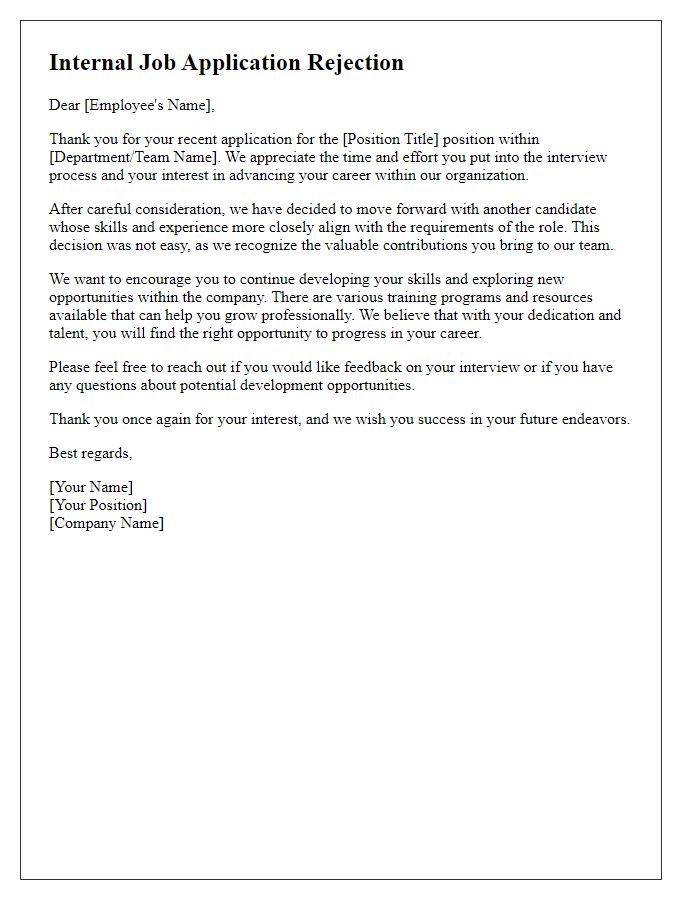
Letter template of internal job application rejection reinforcing current role importance.
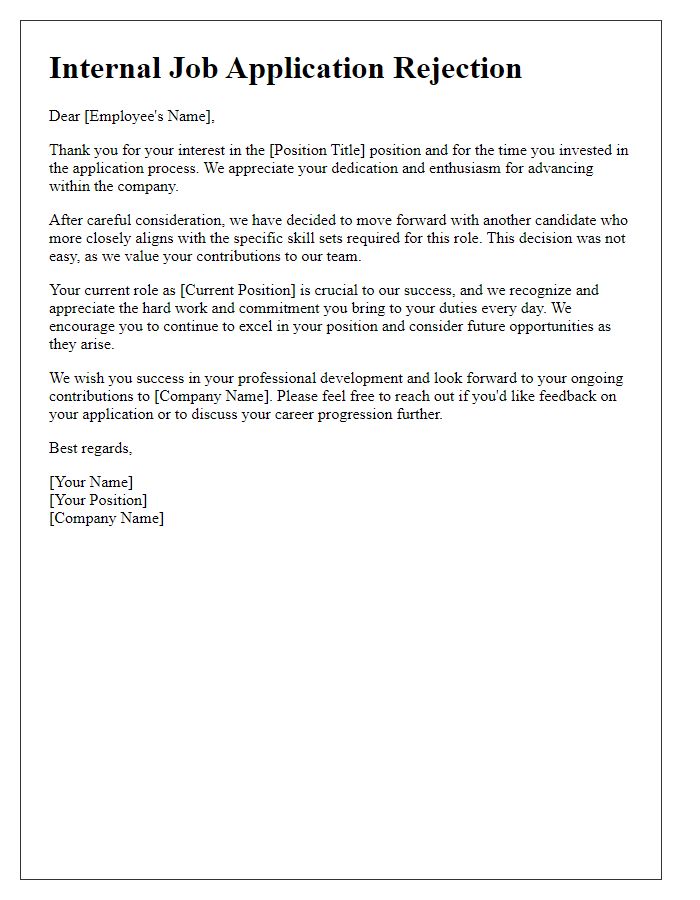
Letter template of internal job application rejection offering alternative positions.
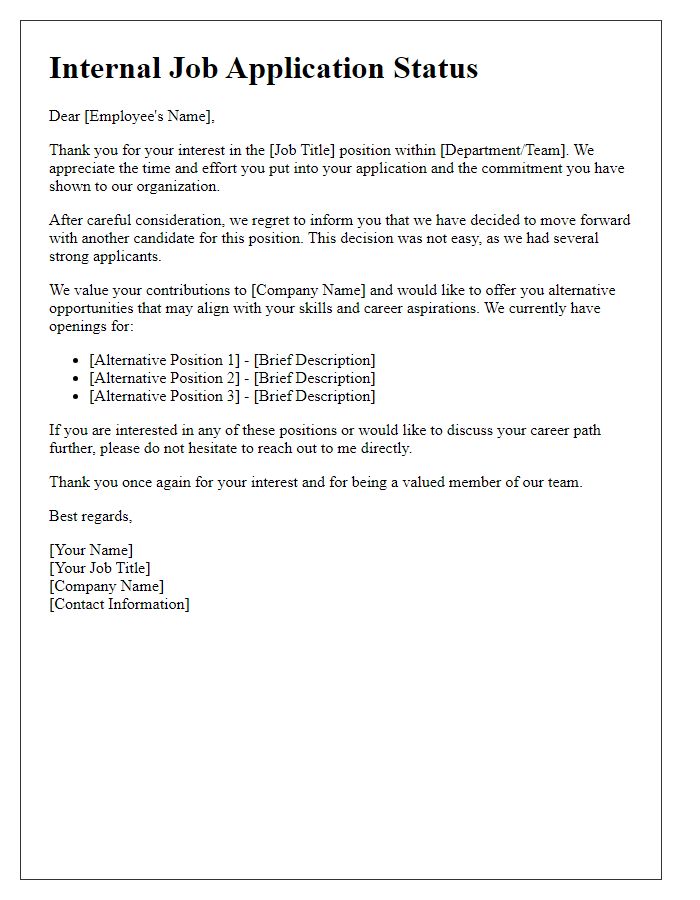
Letter template of internal job application rejection with a positive tone.
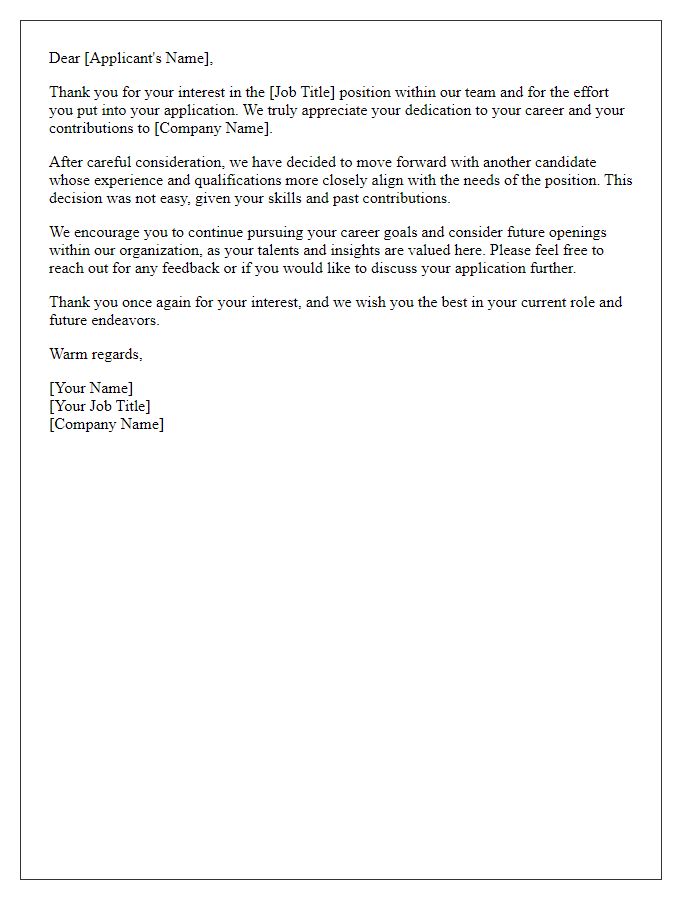
Letter template of internal job application rejection focusing on qualifications.
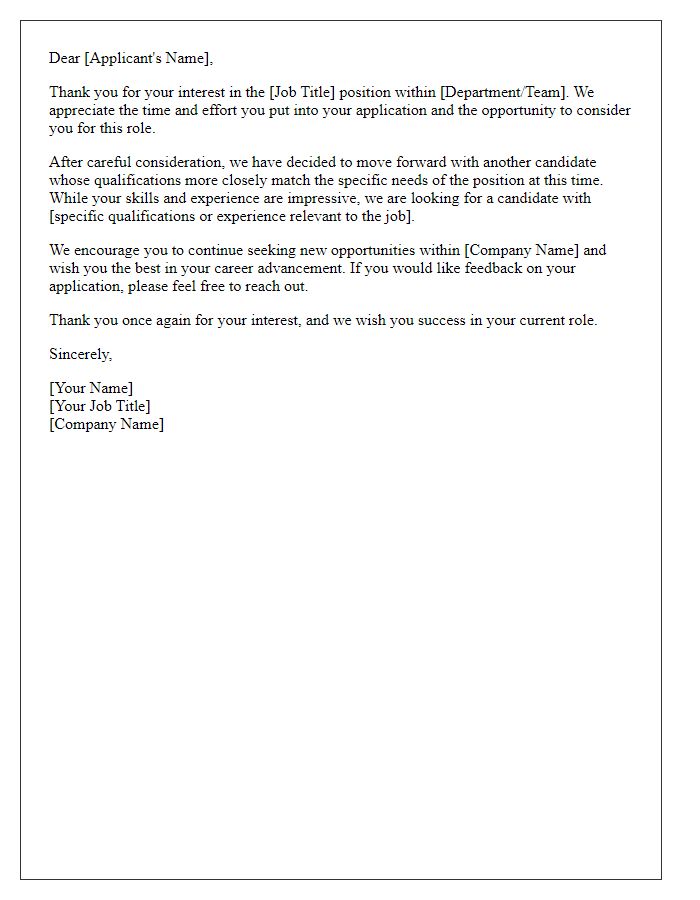
Letter template of internal job application rejection addressing personal growth.
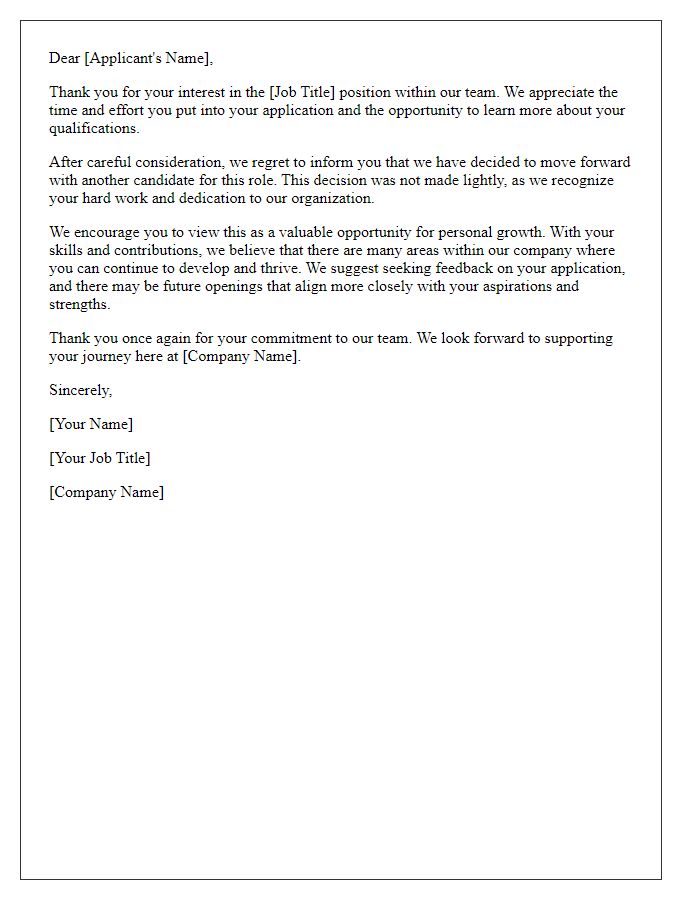

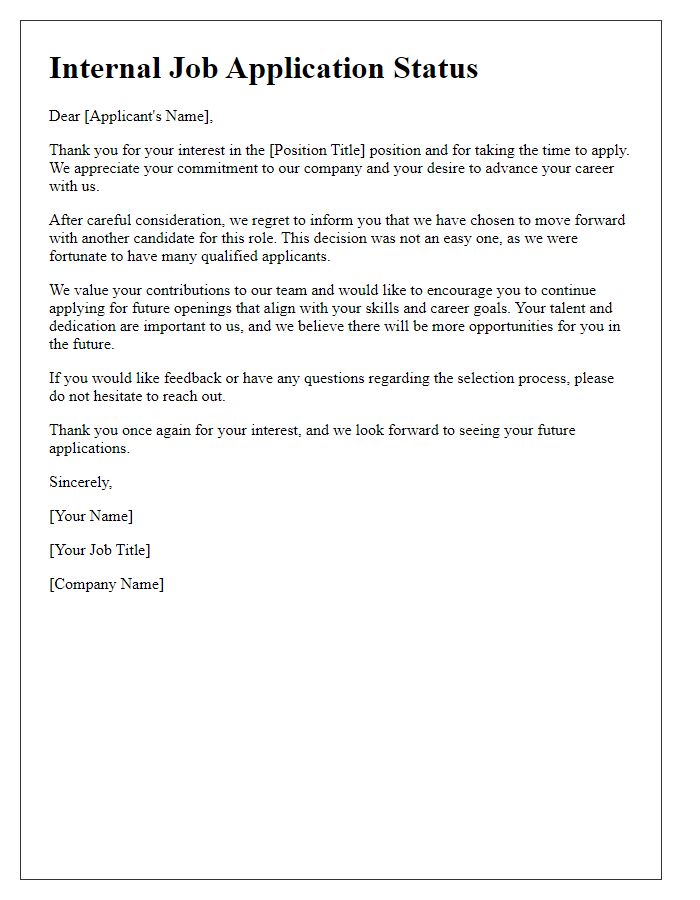

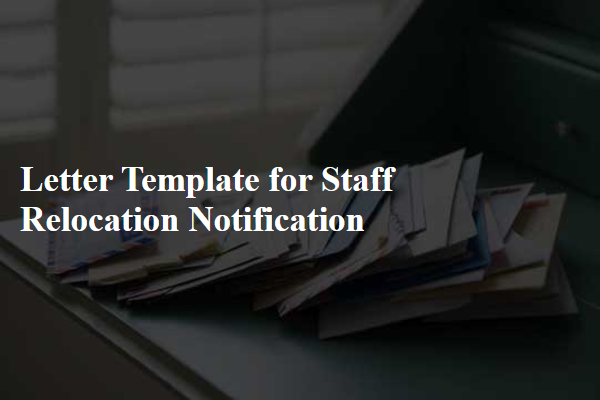
Comments